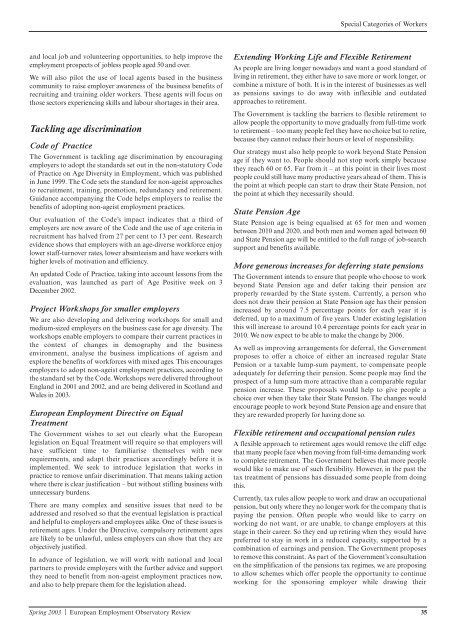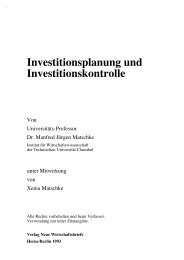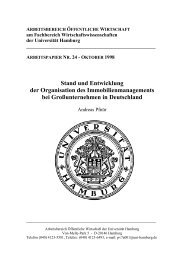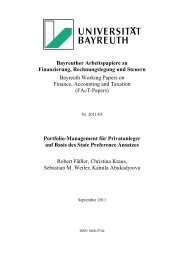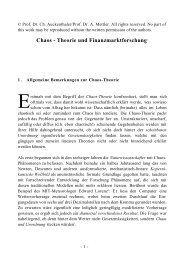FRANCE The
FRANCE The
FRANCE The
You also want an ePaper? Increase the reach of your titles
YUMPU automatically turns print PDFs into web optimized ePapers that Google loves.
and local job and volunteering opportunities, to help improve the<br />
employment prospects of jobless people aged 50 and over.<br />
We will also pilot the use of local agents based in the business<br />
community to raise employer awareness of the business benefits of<br />
recruiting and training older workers. <strong>The</strong>se agents will focus on<br />
those sectors experiencing skills and labour shortages in their area.<br />
Tackling age discrimination<br />
Code of Practice<br />
<strong>The</strong> Government is tackling age discrimination by encouraging<br />
employers to adopt the standards set out in the non-statutory Code<br />
of Practice on Age Diversity in Employment, which was published<br />
in June 1999. <strong>The</strong> Code sets the standard for non-ageist approaches<br />
to recruitment, training, promotion, redundancy and retirement.<br />
Guidance accompanying the Code helps employers to realise the<br />
benefits of adopting non-ageist employment practices.<br />
Our evaluation of the Code’s impact indicates that a third of<br />
employers are now aware of the Code and the use of age criteria in<br />
recruitment has halved from 27 per cent to 13 per cent. Research<br />
evidence shows that employers with an age-diverse workforce enjoy<br />
lower staff-turnover rates, lower absenteeism and have workers with<br />
higher levels of motivation and efficiency.<br />
An updated Code of Practice, taking into account lessons from the<br />
evaluation, was launched as part of Age Positive week on 3<br />
December 2002.<br />
Project Workshops for smaller employers<br />
We are also developing and delivering workshops for small and<br />
medium-sized employers on the business case for age diversity. <strong>The</strong><br />
workshops enable employers to compare their current practices in<br />
the context of changes in demography and the business<br />
environment, analyse the business implications of ageism and<br />
explore the benefits of workforces with mixed ages. This encourages<br />
employers to adopt non-ageist employment practices, according to<br />
the standard set by the Code. Workshops were delivered throughout<br />
England in 2001 and 2002, and are being delivered in Scotland and<br />
Wales in 2003.<br />
European Employment Directive on Equal<br />
Treatment<br />
<strong>The</strong> Government wishes to set out clearly what the European<br />
legislation on Equal Treatment will require so that employers will<br />
have sufficient time to familiarise themselves with new<br />
requirements, and adapt their practices accordingly before it is<br />
implemented. We seek to introduce legislation that works in<br />
practice to remove unfair discrimination. That means taking action<br />
where there is clear justification – but without stifling business with<br />
unnecessary burdens.<br />
<strong>The</strong>re are many complex and sensitive issues that need to be<br />
addressed and resolved so that the eventual legislation is practical<br />
and helpful to employers and employees alike. One of these issues is<br />
retirement ages. Under the Directive, compulsory retirement ages<br />
are likely to be unlawful, unless employers can show that they are<br />
objectively justified.<br />
In advance of legislation, we will work with national and local<br />
partners to provide employers with the further advice and support<br />
they need to benefit from non-ageist employment practices now,<br />
and also to help prepare them for the legislation ahead.<br />
Special Categories of Workers<br />
Extending Working Life and Flexible Retirement<br />
As people are living longer nowadays and want a good standard of<br />
living in retirement, they either have to save more or work longer, or<br />
combine a mixture of both. It is in the interest of businesses as well<br />
as pensions savings to do away with inflexible and outdated<br />
approaches to retirement.<br />
<strong>The</strong> Government is tackling the barriers to flexible retirement to<br />
allow people the opportunity to move gradually from full-time work<br />
to retirement – too many people feel they have no choice but to retire,<br />
because they cannot reduce their hours or level of responsibility.<br />
Our strategy must also help people to work beyond State Pension<br />
age if they want to. People should not stop work simply because<br />
they reach 60 or 65. Far from it – at this point in their lives most<br />
people could still have many productive years ahead of them. This is<br />
the point at which people can start to draw their State Pension, not<br />
the point at which they necessarily should.<br />
State Pension Age<br />
State Pension age is being equalised at 65 for men and women<br />
between 2010 and 2020, and both men and women aged between 60<br />
and State Pension age will be entitled to the full range of job-search<br />
support and benefits available.<br />
More generous increases for deferring state pensions<br />
<strong>The</strong> Government intends to ensure that people who choose to work<br />
beyond State Pension age and defer taking their pension are<br />
properly rewarded by the State system. Currently, a person who<br />
does not draw their pension at State Pension age has their pension<br />
increased by around 7.5 percentage points for each year it is<br />
deferred, up to a maximum of five years. Under existing legislation<br />
this will increase to around 10.4 percentage points for each year in<br />
2010. We now expect to be able to make the change by 2006.<br />
As well as improving arrangements for deferral, the Government<br />
proposes to offer a choice of either an increased regular State<br />
Pension or a taxable lump-sum payment, to compensate people<br />
adequately for deferring their pension. Some people may find the<br />
prospect of a lump sum more attractive than a comparable regular<br />
pension increase. <strong>The</strong>se proposals would help to give people a<br />
choice over when they take their State Pension. <strong>The</strong> changes would<br />
encourage people to work beyond State Pension age and ensure that<br />
they are rewarded properly for having done so.<br />
Flexible retirement and occupational pension rules<br />
A flexible approach to retirement ages would remove the cliff edge<br />
that many people face when moving from full-time demanding work<br />
to complete retirement. <strong>The</strong> Government believes that more people<br />
would like to make use of such flexibility. However, in the past the<br />
tax treatment of pensions has dissuaded some people from doing<br />
this.<br />
Currently, tax rules allow people to work and draw an occupational<br />
pension, but only where they no longer work for the company that is<br />
paying the pension. Often people who would like to carry on<br />
working do not want, or are unable, to change employers at this<br />
stage in their career. So they end up retiring when they would have<br />
preferred to stay in work in a reduced capacity, supported by a<br />
combination of earnings and pension. <strong>The</strong> Government proposes<br />
to remove this constraint. As part of the Government’s consultation<br />
on the simplification of the pensions tax regimes, we are proposing<br />
to allow schemes which offer people the opportunity to continue<br />
working for the sponsoring employer while drawing their<br />
Spring 2003 | European Employment Observatory Review 35


